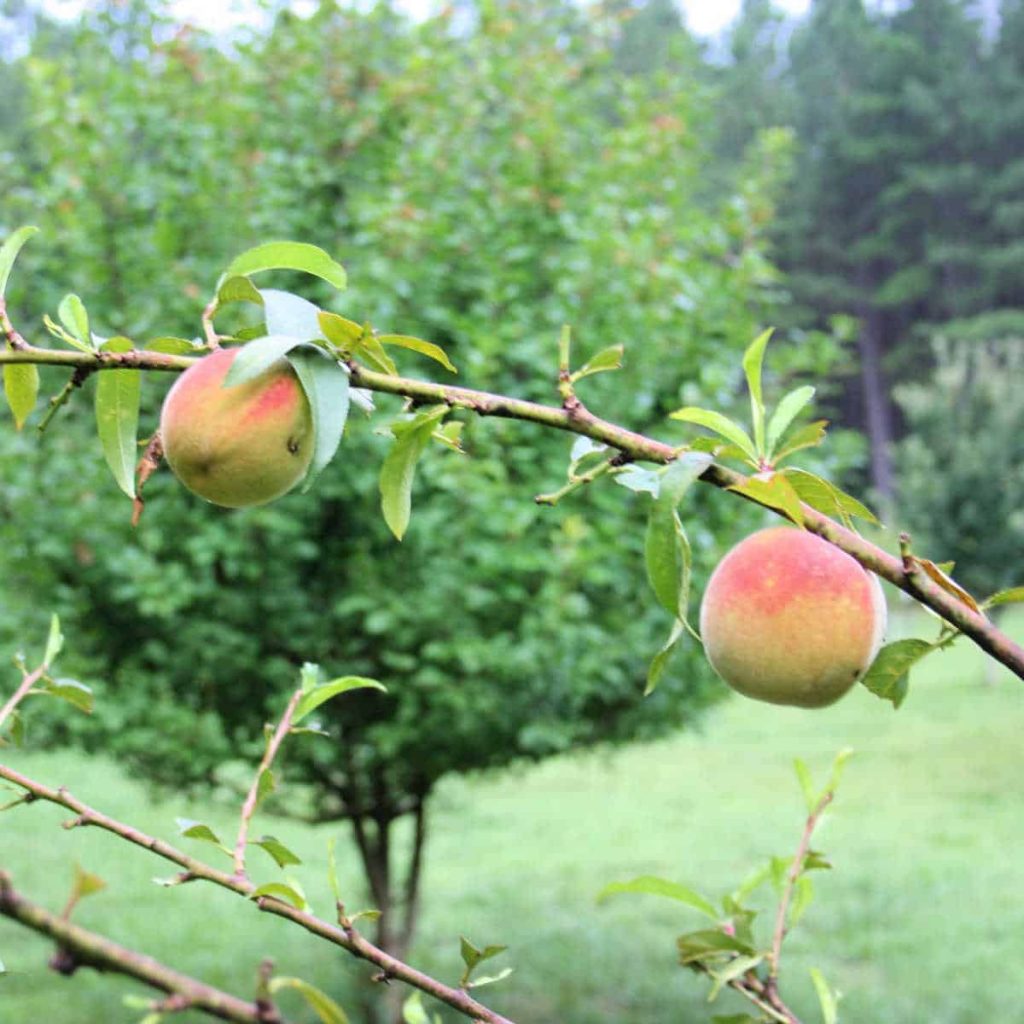Rising peach timber isn’t restricted to the southeastern a part of the USA. Should you select a peach tree right in your gardening zone, you might also develop updated peaches in your yard.
Rising Peach Timber: Deciding on the Right Alternative
Peach timber is more likely to be grown in USDA hardiness zones 4 by way of 8, nonetheless do most fascinating in zones 6 by way of 8.
Necessities for Rising Peach Timber
- Picture voltaic: Peach timber require full daylight, outlined as six to eight hours a day of smart, direct sunshine.
- Area: Relying on the variability, peach timber often develop 10 to fifteen, 20 ft or larger. The unfold can even be spherical 20 ft for the division cowl.
- Bud formation: Buds type on peach tree branches when the tree is at the very least one 12 months outdated. The buds swell after a interval of chilly, so there must be some weeks or months of chilly native climate for good fruit manufacturing. When the native climate warms contained in the spring, the tree breaks dormancy and blooms.
- Pollination: Peach timber are self fertile, which suggests you possibly can have only one peach tree and nonetheless get fruit. They’re pollinated by bees, together with honey bees and native bees.
- Water: Frequent water is required for mature timber. When timber are newly planted, they want further water to search out out an excellent root system (see beneath).
- Propagation: May be grown from seed or cuttings.
About Rising Peach Timber in Virginia – Our Expertise at Seven Oaks Farm
Rising peaches has been considered one of many rewarding parts of planting the fruit orchard correct proper right here at Seven Oaks. The ironic problem is that among the many many many peach timber, the one we initially thought would die is the one producing fruit this 12 months.
Planting Peach Timber
As quickly as we planted the fruit orchard timber in 2007, they acquired proper right here as naked root sticks known as whips (I actually really feel) from the Arbor Day Society. The primary 12 months, all the timber struggled to develop roots, nonetheless this poor peach tree under no circumstances thrived. After two years it really appeared as if it was going to die.
My husband wished to assemble one completely different little raised yard mattress close to the as soon as extra patio. He acquired proper right here up with the thought-about working a PVC pipe from the gutter and chief underground and into the soil beneath the raised mattress. Rainwater from the roof of the home now runs instantly into that yard mattress and to the roots of the peach tree.
I used to be really on the fence with that concept. On the one hand, given Virginia’s loopy scorching summers and droughts, it appeared like an excellent plan. Then as soon as extra, I used to be involved that the rainwater would possibly rot the roots or over water the peach tree. The poor tree appeared as if it wouldn’t make it anyway, so we determined to take a risk and full the enterprise.

The Orchard Presently
After nearly a 12 months, that struggling peach tree took off! It now tops 11 ft tall. It’s the solely tree in your complete yard that has peaches. Ultimately rely, there are about 25 peaches on the tree.
Right now the peaches are turning beautiful shades of orange-red. They’re exhausting as a rock, so no choosing and tasting them nevertheless! I’m trying ahead to the harvest. Even after they don’t sort nearly practically pretty much as good as retailer purchased, they’re MINE…grown the best approach I would really like them to be grown…not waxed, not sprayed with all types of scary stuff, nonetheless grown about 20 ft from my kitchen window.
And likelihood is you will’t beat that for freshness.
We now have:
- 2 Pink Haven peach timber (for updated consuming)
- 4 Elbert peach timber (for canning & preservation)
- 1 Belle of Georgia
- 1 Contender
Among the many many many types of peaches now we have now now grown, the proper for our Piedmont (Zone 7B) yard appears to be Pink Haven. The sort is extraordinary: candy, stuffed with ripe, peach model. They’re good for updated consuming and look like a hardy tree.
Up to date March 2023 with new data, hyperlinks and photographs.

